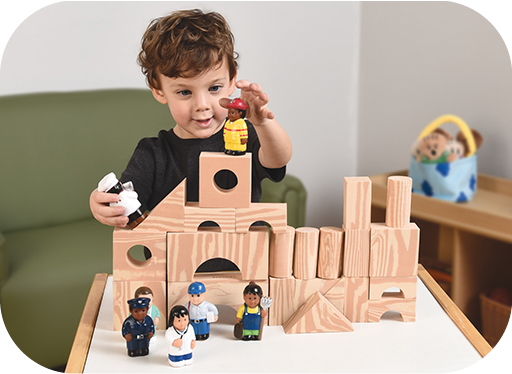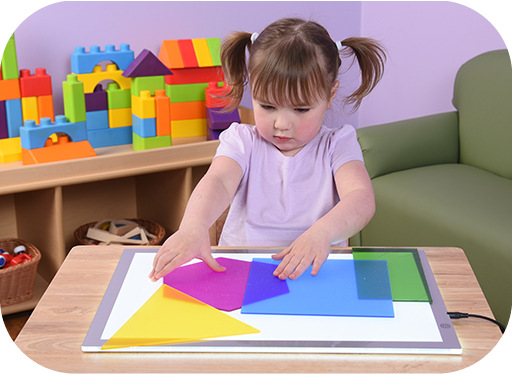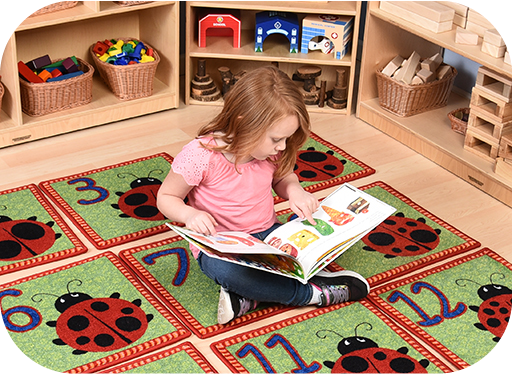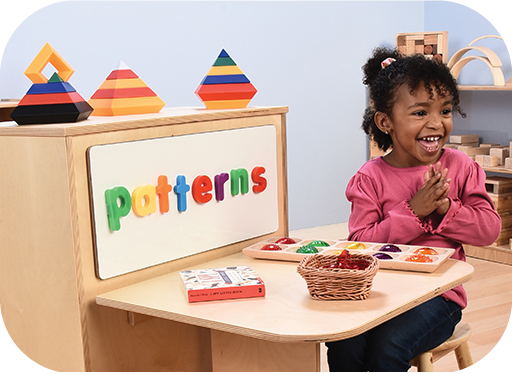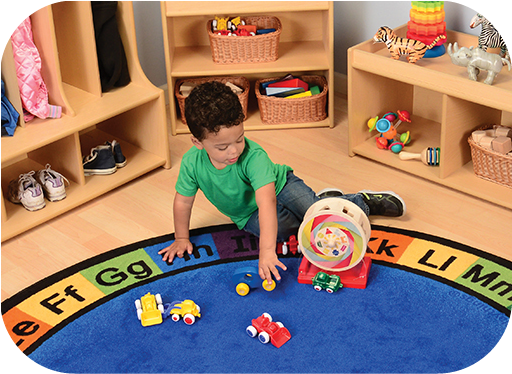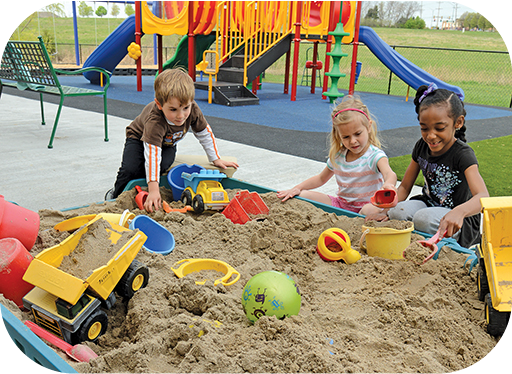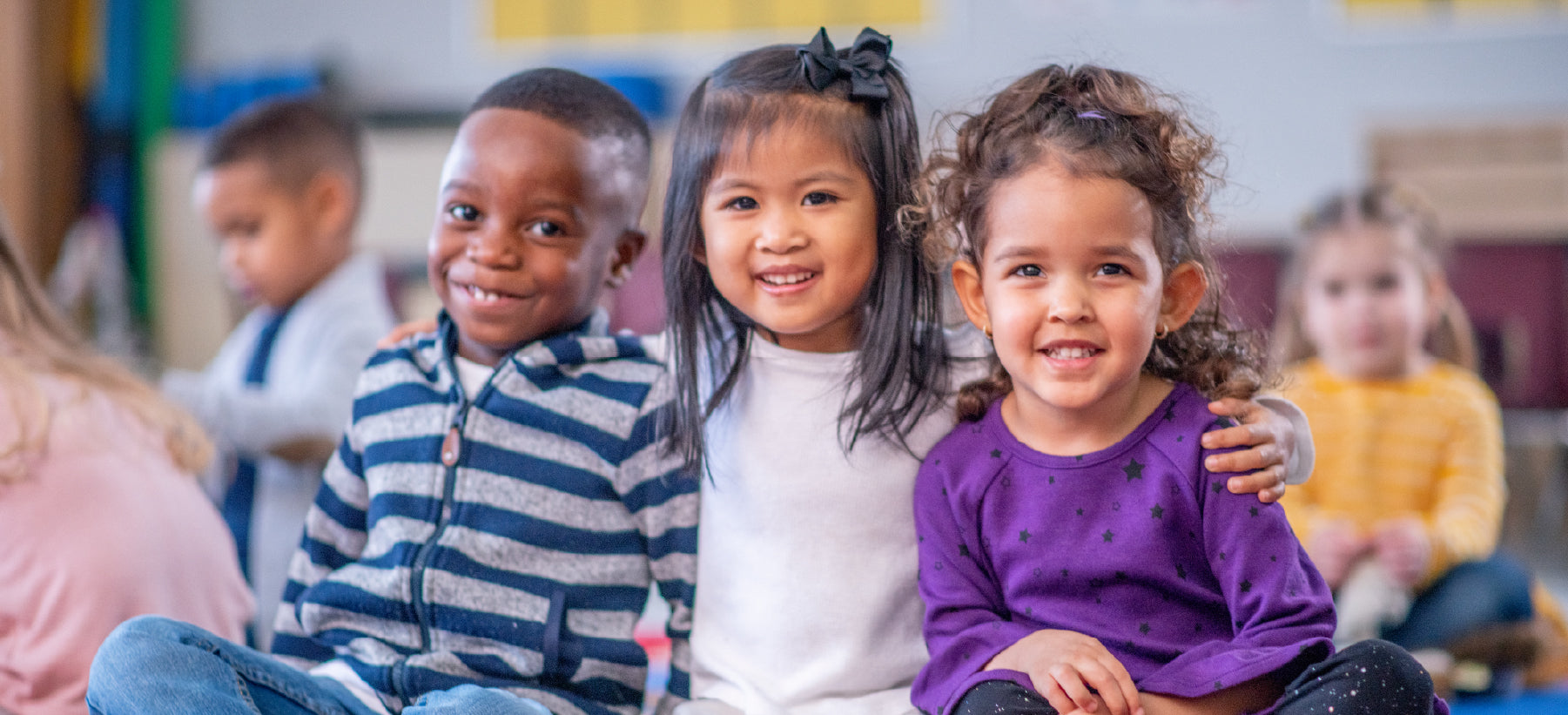
The Power of Play: How Social-Emotional Learning Shapes Early Childhood Development
Social-emotional learning (SEL) isn’t just a buzzword—it’s the heart of early childhood education. It’s about helping kids understand their feelings, connect with others, and develop the kind of resilience that will serve them for life. As a preschool teacher, I’ve seen the magic that happens when play becomes a vehicle for social-emotional growth. In this post, I want to share why SEL matters so much and how simple, everyday play can make a huge impact on young learners.
Why Social-Emotional Learning Matters in Early Childhood
When kids learn to recognize and manage emotions, they build a foundation for success—not just in school, but in life. Research backs this up: strong SEL skills improve academic performance, behavior, and emotional well-being. But more importantly, they help kids feel safe, confident, and connected to the world around them.

Understanding Emotions Through Play
Kids aren’t born knowing how to name their feelings or handle frustration. That’s where play comes in. Dramatic play—acting out real-life scenarios, using puppets, or playing house—gives children a safe space to express emotions, try on different roles, and practice empathy. When a child plays “doctor” and takes care of a stuffed animal, they’re not just pretending—they’re developing compassion and problem-solving skills.
Learning to Work Together
From building block towers to creating an imaginary world, play naturally teaches cooperation. Kids negotiate roles, take turns, and navigate disagreements—all of which are essential skills for building relationships. I’ve watched children go from parallel play (playing side by side) to fully engaged teamwork, and it’s incredible to see their social confidence grow.
Developing Patience and Self-Regulation
Ever seen a child wait their turn in a board game or manage disappointment when their tower collapses? These moments are gold for teaching self-regulation. Play gives kids low-stakes opportunities to handle frustration, adapt to new situations, and practice patience—all without the stress of adult-sized consequences. Pro Tip: When you see your child in a moment of distress during a social situation, pause and give them 30 seconds to try to solve the problem. Then, provide a prompt, such as, “How do you think you can fix it?”. Step back again and allow them to do the heavy lifting. This practice will foster independence while building social confidence in your child.
Zeke's Story: From Isolation to Connection
When Zeke started preschool at three years old, he had never socialized outside of his immediate family. He would sit on the outskirts of group activities, watching but never joining. Instead of forcing interaction, we used play to build his comfort. Every morning, I invited him to roll a ball back and forth—just him and me at first, then gradually adding other children. Over time, Zeke began to seek out his peers independently. By mid-year, he was leading group games and laughing alongside his classmates. Play had given him a bridge into friendship on his own terms.
Simple Ways to Support SEL Through Play
Encourage Role-Playing and Storytelling
Pretend play isn’t just fun—it’s a powerful way to develop empathy. When kids step into someone else’s shoes, they start to understand different perspectives. Encourage dress-up play, create story prompts, or introduce puppets to help kids navigate emotions and social interactions.

Promote Collaborative Play with Open-Ended Toys
Materials like blocks, sensory bins, and loose parts encourage teamwork and problem-solving. The less structured the activity, the more children have to communicate and negotiate with each other.
Use Sensory Play for Emotional Regulation
There’s a reason why sensory bins, kinetic sand, and water tables are so popular—they help kids self-soothe. Sensory play offers a calming, hands-on way for children to work through emotions and develop focus.
Make Social Skills a Game
Simple turn-taking games, role-playing exercises, and even classic board games help reinforce patience, cooperation, and emotional regulation. When kids experience success in these small moments, they’re better equipped to handle bigger social challenges.
Supporting SEL at Home and In the Classroom
Create a Play Environment that Supports SEL
The way we set up a play space can encourage connection and cooperation. Cozy reading corners, open-ended play materials, and group-friendly activities invite children to engage with each other and practice social skills naturally.
Be an Active Play Partner
As adults, we can model SEL skills by playing alongside children. Narrating emotions, guiding problem-solving, and reinforcing positive interactions all help children internalize these skills. Instead of saying, “Don’t get upset,” try, “I see that you’re frustrated. What can we do to make this work better?”
Use Books and Stories to Start Conversations
Stories are a great way to introduce SEL concepts. Books about friendship, emotions, and problem-solving can lead to meaningful discussions. Ask open-ended questions like, “How do you think that character felt?” or “What would you do in that situation?”
Encourage Child-Led Play
Let kids take the lead in their play. Giving them the space to make choices, navigate conflicts, and direct their own experiences builds confidence and independence.
Lily's Story: Learning to Love Friendship
Lily was a bright and imaginative four-year-old, but she struggled to connect with her peers. She would play alone in the block center, carefully stacking and organizing, but when another child tried to join, she’d walk away. With intentional social coaching, we worked on simple play scripts—teaching her phrases like “Can I help?” or “Let’s build together.” Slowly, she started using them. One day, I walked into the block center to find Lily laughing with two other children, building an entire town together. The joy in her eyes was unmistakable—she had discovered the beauty of friendship through play.
The Lasting Impact of SEL-Focused Play
I’ve spent years watching children grow through play, and one thing is clear: the social-emotional lessons they learn on the playground, in the block center, and during dress-up time stick with them far beyond their early years. Prioritizing play that builds SEL skills doesn’t just help kids in the moment—it sets them up for a lifetime of meaningful relationships, emotional resilience, and confident problem-solving.
By making small, intentional shifts in how we approach play, we can create powerful learning experiences that help children thrive—not just as students, but as people. And honestly, that’s what makes early childhood education so rewarding.
About the Author
Trevor T. Newton is an early childhood educator, speaker, and advocate with over 15 years of experience in the field. With a Master's degree in Early Childhood Special Education, Trevor specializes in fostering social-emotional development through play-based learning. He shares insights, strategies, and inspiration for educators and parents alike. Connect with him on Instagram @trevornewton or visit TrevorTNewton.com for more resources and training opportunities.


